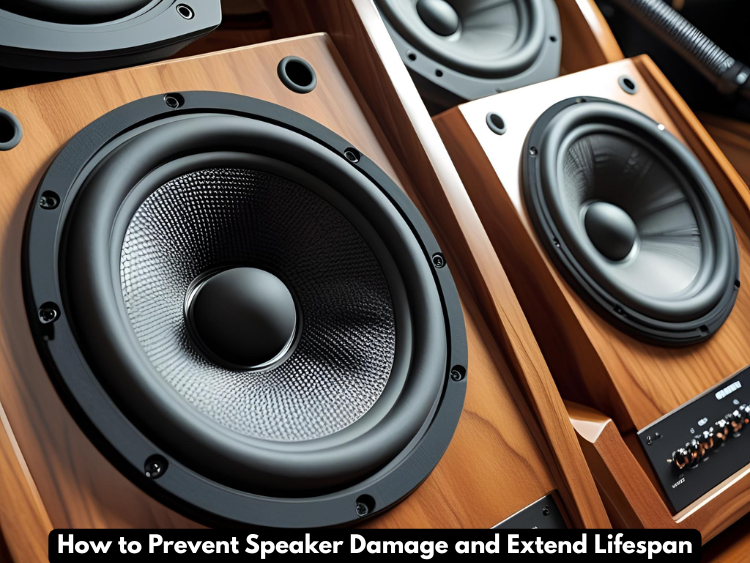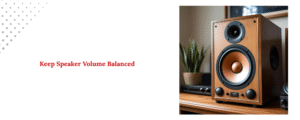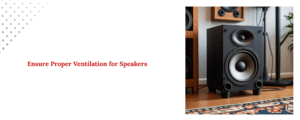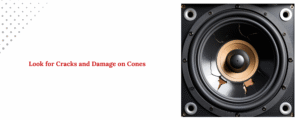If you like to watch movies at home, listen to music, or just enjoy great sound, speakers are an important part of any sound system. But if you don’t take care of them, even the best speakers can break down or stop giving good sound. Good news: if you do a few simple things, you can keep your speakers in great shape and make them last a lot longer.
Don’t Make the Speakers Too Loud
Overpowering, or giving the speakers more power (watts) than they can handle, is one of the main reasons they get damaged. This often leads to distortion, drivers that get too hot, or even drivers that blow. To make sure your amplifier or radio works with your speakers, you should always check their power requirements.
If you use an amplifier that is too strong, it can clip, which makes a sound that is harsh and distorted and can easily damage the voice coil or cone. On the other hand, using an amp that doesn’t have enough power and pushing it to its limits can also damage the speakers and cause clipping. When it comes to speed and durability, stay in the “sweet spot” of the power range.
Make Sure the Volume Isn’t Too Loud
It’s tempting to turn up the volume during parties or intense movie scenes, but playing music at a loud volume for a long time can damage the speaker components. Woofers and tweeters move very quickly, which causes heat and mechanical stress. This can harm the suspension over time by causing cone wear, coil burning, and failure.
If you play music loudly a lot, you should buy speakers that are made to handle more power. For now, keep the noise level modest and give your speakers a chance to breathe. It will be good for your ears and the people around you.
Make Sure It’s Well-Ventilated and in the Right Place
When they’re working, speakers, especially powered or active ones, make heat. If they are put in small areas or places with poor air flow, heat can build up and shorten the life of parts inside. Allow enough air to flow around your speakers at all times, and don’t put them near heat sources like heaters or direct sunlight.
Placement also affects how well and how long the sound lasts. Keep speakers off the floor where dust, moisture, and vibrations can be problematic. Be sure the speakers are stable before you use stands or wall mounts to keep them from falling over.
Use Quality Cables and Connections
Low-quality or damaged speaker cables can lead to poor sound and potential damage. Wires that are frayed, connections that are loose, or resistance that isn’t properly matched can all make the current flow unevenly, which can cause the speaker to overheat and break.
Use high-quality, properly protected wires of the right diameter (thickness) for your setup. For longer runs, thicker wires (lower gauge numbers) are better. Check leads and connections for rust and wear on a regular basis and repair them as needed.
Protect from Dust and Debris
Dust may seem innocent, but it can enter speaker grilles, settle on drivers, and interfere with mechanical operation. Dust can hurt moving parts and change the sound quality over time.
Use a soft, dry cloth to clean your speakers often. Clean ports, grills, and cracks with compressed air from a can. Do not put cleaning products directly on the surface of the speaker.
Cover speakers that aren’t being used with cloth or plastic covers to store them, especially in dusty places.
Do Regular Checks for Repairs
Every two months, look for signs of wear on your speakers. Find these:
- Breaks or cracks in the cone or the area around it
- Not tight links
- Buzzing or rattling sounds while the music is playing
- Changes in how sound sounds
You might be able to save your speakers if you catch problems early. If you’re not sure you can do this yourself, you might want to have them repaired by an expert. Read about the top 10 frequently asked questions about replacement speakers to learn more.
Keep in the Right Place When Not in Use
Keep your speakers in a cool, dry place out of direct sunlight and away from temperature extremes when you’re not using them for a long time. Putting something over them will keep dust and damage from happening. Carefully take out and store wires to keep them from getting worn out or tangled. Check out some budget replacement speakers under $100 if you’re storing old ones or looking to replace ageing units.
Conclusion
Getting speakers is an investment in how well you can hear. If you take good care of them, they can give you years or even decades of deep, rich sound. By keeping the volume at a safe level, making sure the speakers are placed correctly and have enough air flow, keeping them away from moisture, and doing regular maintenance, you can avoid common mistakes that damage speakers and enjoy better sound for longer.




